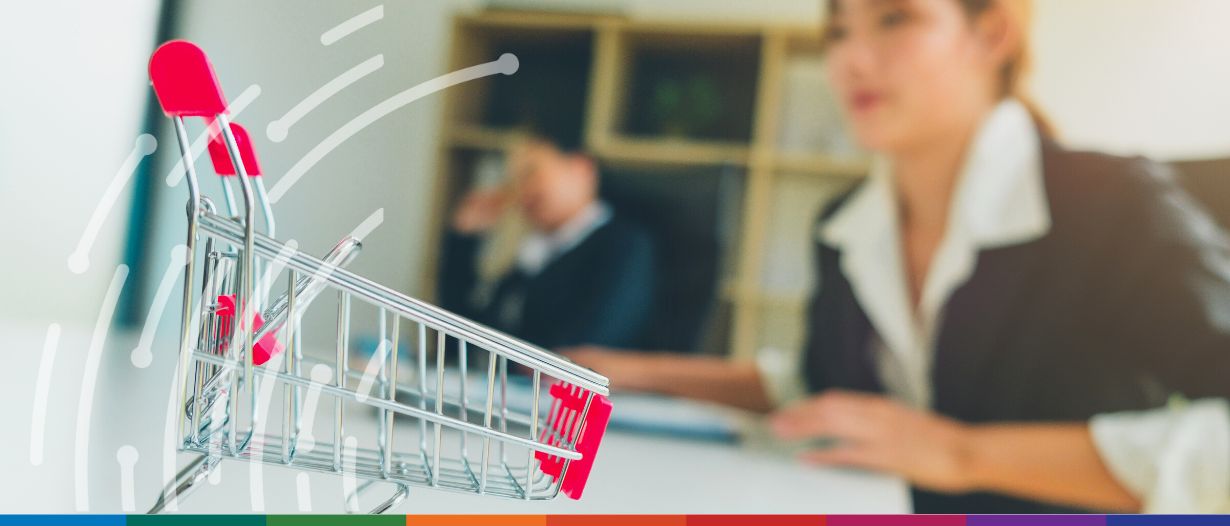Estimated reading time: 4 minutes
International Lawyers and Economists for Development (ILaED) is a non-government organisation focusing on the economic development of women and girls. By encouraging entrepreneurial skills, it helps them engage in both local and international markets.
Training includes guidance on intellectual property protection and marketing strategies, as well as affordable trading options in physical and electronic commerce. The emphasis on e-commerce, in particular, allows women to balance business transactions with household responsibilities.
Challenges to e-commerce in Africa
There has been some growth in e-commerce, but its impact isn’t equally distributed. Digitisation has increased efficiency and enabled those with the right resources to build businesses or maintain their quality of life.
It has also concentrated the power of some large businesses, such as Amazon, and emphasised the significance of inequalities in income, connectivity, capabilities and governance. But most of the women we work with do not have the resources.
Common barriers include limited or lack of internet connectivity, the cost of broadband, limited means for electronic payment, poor legal framework on e-commerce, limited digital training and a lack of trust among citizens, a traditional preference for cash, and little government support.
The main challenge involves securing the necessary financing to allow women to initiate and grow their businesses, and ILaED to assist them in these efforts. This need for funding became particularly evident after successful activities related to World IP Day (WIPD), when participants expressed interest in various follow-up actions.
Financing is essential not only for our company and the women who are looking to expand their businesses but also for conducting the relevant market research and training that will support their entrepreneurial growth.
Establishing an online shop or creating an online presence for an existing physical business is vital in today’s market. However, commercial banks, which are beginning to lend to e-commerce firms, usually focus on large, established companies rather than start-ups or MSMEs, many of which are managed by women.
Alternative financing methods like crowdfunding or venture capital are still underdeveloped, making access to necessary funding more challenging for these smaller businesses.
Possible solutions include educating banks about e-commerce operations, launching fintech and financial insurance products for MSMEs, and having governments lead these initiatives to support emerging business structures.
Another common barrier is the lack of electronic and digital payments for African e-commerce.
The main mode of payment for e-commerce goods is cash on delivery, owing to a lack of electronic payment facilities and to some extent, a lack of trust in paying online. Cash on delivery is more expensive for businesses to manage, but also increases theft and risks of payment refusal.
Mobile phones offer another source of payment. For example, in Uganda, there were nearly 23 million mobile money accounts in 2017, and the total value of mobile money transactions reached $16.3 billion.
According to UNCTAD, “Unstructured supplementary service data (USSD) is the most common technology in mobile financial services but the lack of regulations on the use and security of USSD transactions increases risks for end-users. Large national mobile operators like MTN and Airtel provide services for mobile payments through e-wallets, using a growing agent banking network.”
But high taxes on withdrawals through mobile money platforms affect consumer behaviour. That said, in Sub-Saharan Africa, mobile money transactions grew exponentially during COVID-19.
Customers are not only using their accounts more frequently, but they are using them for new and more advanced uses, which might suggest that more and more people are moving away from the margins of financial systems and leading increasingly digital lives.
Going digital is for all genders
The gender divide hinders e-commerce, particularly as women play a vital role in agriculture—a sector employing most people in Africa and significantly contributing to both GDP and export earnings.
A report by Mendeza-Parra shows that in Uganda, women constitute 75% of the agricultural labour force. He posits that accelerating the adoption of digital platforms may contribute to accelerating female economic empowerment. “Addressing the gender-digital divide requires more targeted investment into pps that involve women in the decision-making process, or that are women-centric from the start.”
The Jokkalante project, where The Gambia has partnered with the International Trade Centre (ITC) to promote e-commerce by women, is a prime example.
Rural areas, where most people reside, lack sufficient infrastructure and services, hindering e-commerce goods delivery. The absence of formal addresses in many households and inadequate postal services further exacerbate this issue.
A large portion of goods-based e-commerce is being delivered by express courier or by third parties, which makes it expensive. UNCTAD reports that taxi services such as Uber Uganda, Friendship Taxi, SafeBoda and Quick Taxi already provided some transport logistics for e-commerce.
Private couriers such as DHL Express, Yellow Pages Express and CourieMate Uganda also form an important part of the delivery logistic market.
The Rapid eTrade Readiness Assessment Report on Africa outlined a number of activities that are needed to create well-functioning e-commerce systems.
They include using apps as e-commerce platforms, supporting mobile payments and sensitising banks on the importance of e-payments, training and equipping e-commerce entrepreneurs with skills, partnering in logistics and having an e-commerce legal framework. ILaED.org endeavours to address some of these needs, individually or with the help of financial and technical partners.




























